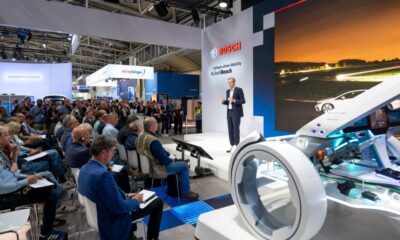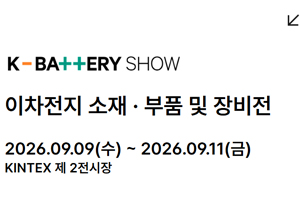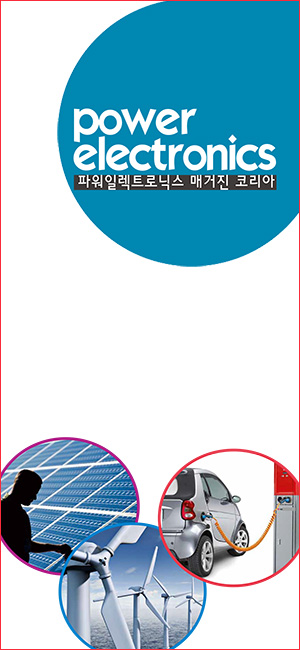EnglishNews
Bosch Strengthens Global Competitiveness Through Sustainable Supply Chain Management
Bosch is enhancing global competitiveness through sustainable supply chain management and digitalization, while fulfilling its environmental and social responsibilities.
Dr. Arne Flemming, head of supply chain management at Bosch
Bosch has integrated purchasing and logistics into its supply chain management (SCM) to build stable and sustainable supply chains, enhancing its global competitiveness. In a recent interview, Dr. Arne Flemming, head of supply chain management at Bosch, outlined the company’s strategic approach to achieving this goal.
Bosch collaborates with approximately 225 manufacturing plants, 250,000 customers, and over 35,000 suppliers worldwide to manage its supply chains. The primary objective is to ensure the availability of components, raw materials, and products in line with customer demand while maintaining high quality and competitive pricing. Dr. Flemming emphasized, “Strong and sustainable supply chains are essential for surviving global competition. Bosch is committed to harmonizing economic, ecological, and social responsibilities.”
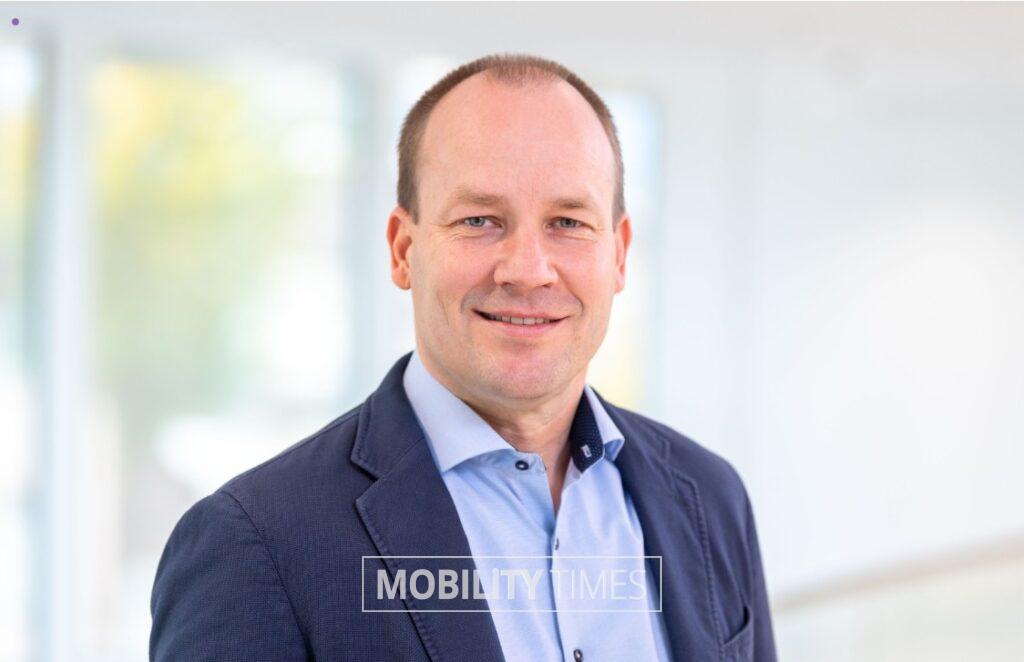
Sustainability at the Core
With an annual purchasing volume of around 50 billion euros, Bosch is actively working to enhance the sustainability of its supply chains. The company focuses on conserving raw materials, reducing carbon emissions, and optimizing logistics through measures such as consolidated shipments and improved packaging. Dr. Flemming highlighted that digitalization plays a key role in real-time monitoring of supply chain data, ensuring compliance with legal requirements and environmental and social standards.
Bosch conducts annual audits of over 100 business partners to verify compliance with environmental regulations and human rights principles. Suppliers that fall short of these standards receive additional training to meet Bosch’s expectations. “Our requirements as a manufacturer and supplier have a ripple effect, influencing thousands of sub-suppliers and amplifying our collective contribution to mitigating global warming,” Dr. Flemming explained.
Adapting to Geopolitical and Climate Challenges
In response to geopolitical upheavals and increasingly extreme weather events, Bosch has adopted a “local-for-local” strategy. By producing close to its customers through a global manufacturing network, the company has made its supply chains shorter, more flexible, and less vulnerable to disruptions. Anticipatory supply chain risk management allows Bosch to respond swiftly to challenges such as supply shortages, natural disasters, and blocked shipping routes.
“Stable supply chains are the backbone of a sound economy,” Dr. Flemming stated. “Partnership-based business relationships and a high degree of digitalization enable us to work hand-in-hand with suppliers and maintain clarity across the supply chain, from procurement to manufacturing to delivery.”
Embracing Digitalization and AI
Digitalization is a cornerstone of Bosch’s supply chain strategy. The company uses integrated planning systems to quickly adjust supply sources, shipping routes, and manufacturing locations in response to bottlenecks. End-to-end electronic data exchange, facilitated by platforms like SupplyOn, ensures seamless communication from suppliers to plants to customers.
Looking ahead, Bosch is exploring the use of generative AI to further enhance supply chain automation. “We expect AI to take our planning capabilities to a new level, improving efficiency and resilience,” Dr. Flemming said. Current applications of AI include voice recognition on supplier hotlines and data extraction from drawings and specifications in quality assurance processes.
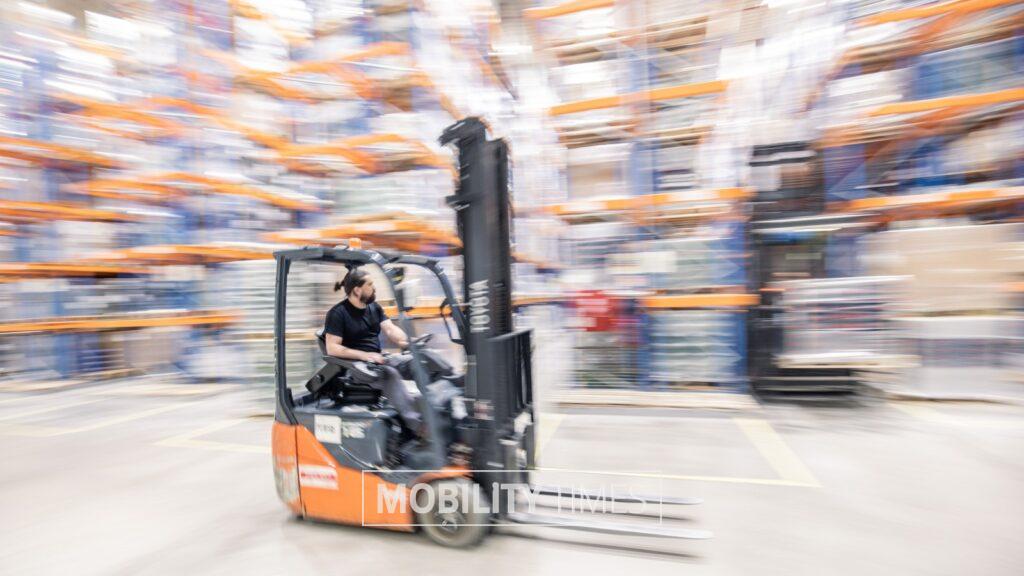
A Vision for Inclusive and Sustainable Mobility
Bosch’s supply chain management aligns with its broader vision of creating an inclusive and sustainable mobility ecosystem. By prioritizing sustainability, digitalization, and flexibility, Bosch aims to not only strengthen its competitive edge but also contribute to global prosperity and environmental preservation.
Dr. Flemming concluded, “Our supply chain strategy goes beyond logistics efficiency. It is a core part of our commitment to a sustainable future, ensuring that we meet the needs of today without compromising the ability of future generations to meet theirs.”
Through its innovative and responsible approach, Bosch continues to set a benchmark for sustainable supply chain management in the global manufacturing industry.

모빌리티(Mobility)의 미래 비즈니스 전략을 찾다
- 모빌리티타임즈 (mobilitytimes.net)
-

 Features2개월 ago
Features2개월 ago차 안을 ‘빛의 캔버스’로 바꾼 아우모비오
-

 Features2개월 ago
Features2개월 ago[기획] 자율주행 레벨 3 전환 앞당기는 차세대 반도체 기술을 만나다
-

 Features2개월 ago
Features2개월 ago[마켓] “자율주행의 완성은 보안”… 10조 원 시장을 선점하라, V2X 보안 패권 경쟁
-

 Opinion2개월 ago
Opinion2개월 ago도로 위 ‘유령 차’가 급제동을 건다… V2X 보안, 자율주행의 아킬레스건을 막아라
-

 Features2개월 ago
Features2개월 ago[칼럼] 보쉬, 모빌리티의 본질을 묻다… “가장 인간적인 피지컬, 가장 정교한 디지털 AI”
-

 Features2개월 ago
Features2개월 ago[심층리포트] 현대차그룹 메타플랜트 아메리카(HMGMA)와 휴머노이드 로봇 도입 전략
-

 Features1개월 ago
Features1개월 ago[산업 리포트] SDV·전동화 대전환, 생존의 키는 ‘고부가가치 전장’에 있다… 국내 업계 주목 유망 부품 Top 5
-

 Features2개월 ago
Features2개월 ago“이 신호등, 믿어도 될까?”… 자율주행, 연결을 넘어 ‘데이터 신뢰’의 시대로







